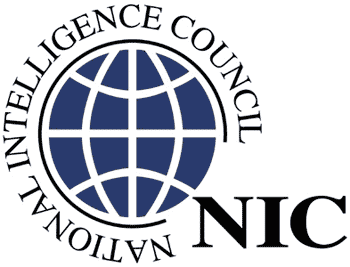|

by Jurriaan Maessen
September 25, 2010
from
InfoWars Website
Spanish version
Recently a document was disclosed by the
grace of the Freedom of Information Act entitled
Global Governance 2025 - At a Critical
Juncture.
The document, written by the American
National Intelligence Council (NIC)
and the European Union’s Institute for Security Studies (EUISS),
outlines the agenda from now to 2025 for global government.

It discusses the many obstacles in the
quest for achieving global government and discusses the possibility,
the desirability, of,
“designing humans with unique
physical, emotional, or cognitive abilities.”
The American National Intelligence
Council and the European Union’s Institute for Security
Studies outline the agenda from now to 2025 for global
government.
“While not being policy
prescriptive, the report shares a strong belief - as exemplified
by multilateralist approaches of the US and EU governments to
resolving global problems such as the recent financial crisis -
that global challenges will require global solutions.”, the
document reads.
Stressing that issues such as
proliferation and cybersecurity are already subject to sufficient
international cooperation, the document states:
“(…) we focus on such issues as
intrastate conflict, resource management, migration, and
biotechnology. Although recognized by many as ongoing
challenges, we believe the long-term impact of these issues on
the strength of the international order has not been fully
appreciated.”
Recognizing that the push for global
governance (which is a euphemism for global government) is meeting
with increasing resistance worldwide, the authors blame a
“multipolar world” for this fact:
“Diverse perspectives and suspicions
about global governance, which is seen as a Western concept,
will add to the difficulties of effectively mastering the
growing number of challenges.”
The document also recognizes
international unease with large-scale military adventures,
“if (…) driven by the 'West'”.
Furthermore, it proposes an,
“overall framework to manage the
interrelated problems of food, water and energy.”
“Other over-the-horizon issues”, the document goes on to say,
“migration, the potential opening of the Arctic, and risks
associated with the biotechnology revolution - are likely to
rise in importance and demand a higher level of cooperation.
These issues are difficult ones for multilateral cooperation
because they involve more preventive action.
Under current circumstances, greater
cooperation on those issues in which the risks are not clear-cut
will be especially difficult to achieve.”
The document goes on to outline
several “potential scenarios” of future developments that may
threaten the “international system”, the first being that
“formal institutions remain largely unreformed and Western
states probably must shoulder a disproportionate share of
“global governance” as developing countries prevent disruptions
at home.
This future is not sustainable over
the longer term as it depends on no crisis being so unmanageable
as to overwhelm the international system.”
The second scenario projected is that of
“fragmentation”, or,
“Powerful states and regions try to
wall themselves off from outside threats.”
The third scenario is the most worrisome
- not according to the authors of the document, but to all of free
humanity:
“Under this scenario, severe threats
to the international system - possibly a looming environmental
disaster or a conflict that risks spreading - prompt greater
cooperation on solving global problems.
Significant reform of the
international system becomes possible. Although less likely than
the first two scenarios in the immediate future, such a scenario
might prove the best outcome over the longer term, building a
resilient international system that would step up the level of
overall cooperation on an array of problems.
The US increasingly shares power
while China and India increase their burden sharing and the EU
takes on a bigger global role. A stable concert could also occur
incrementally over a long period in which economic gaps shrink
and per capita income converges.”
Mentioning the possibility - even
desirability - of a “looming environmental disaster” or conflict as
a means to establish world government is the preferred path ahead,
according to the authors.
But, even more disturbing that global
governance to “combat” looming threats, is the possibility and
desirability of,
“designing
humans with unique physical, emotional, or cognitive
abilities”, pondered upon by the US and EU intelligence
councils.”
Here is the quote in full:
“In addition, biotechnology - which
the OECD thinks will potentially boost the GDPs of its members -
can drive new forms of human behavior and association, creating
profound cross cultural ethical questions that will be
increasingly politically contentious. Few experts believe that
current governance instruments are adequate for those
challenges.
For example, direct
modification of DNA at
fertilization is widely researched with a goal of removing
defective genes; however, discussions of future capabilities
open the possibility for designing humans with unique physical,
emotional, or cognitive abilities.”
There it is.
The document is upfront about it.
“Current governance instruments” are
insufficient for the goals of
the global elite. To facilitate
“designing humans with unique physical, emotional, or cognitive
abilities” a global framework is needed.
|

